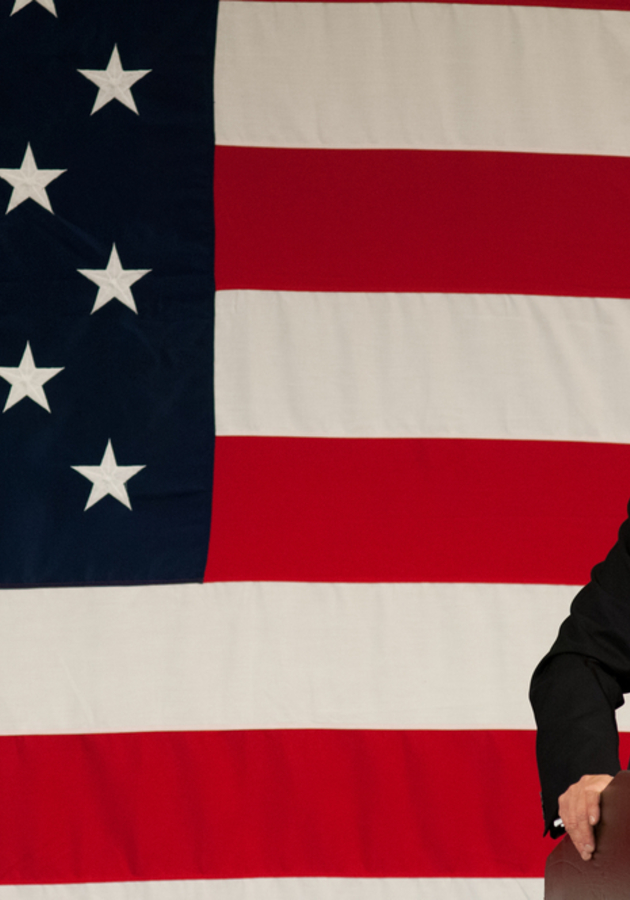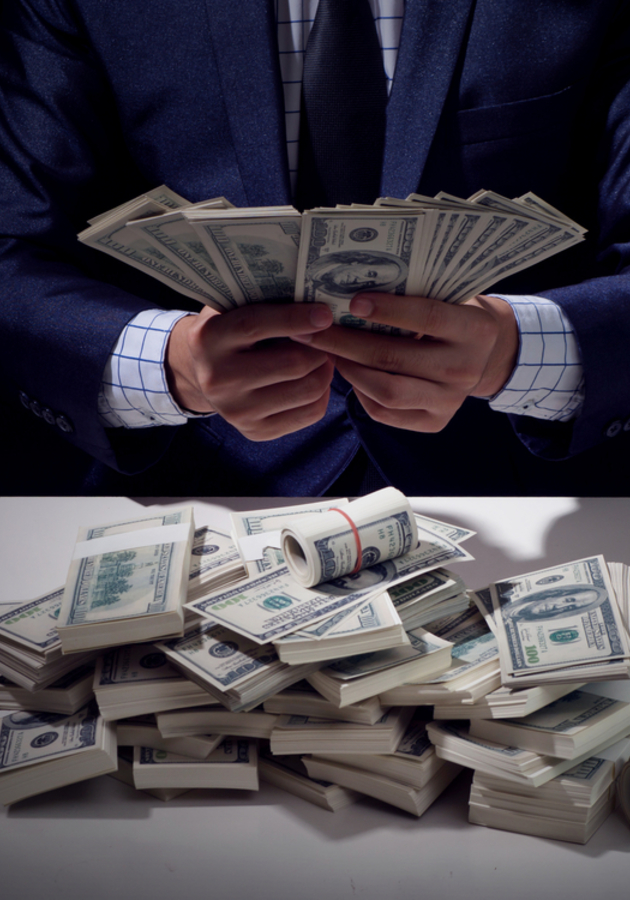Have you ever wondered what the White House was like under Donald Trump? “Fire and Fury,” published in 2018, was the first inside look at the inner workings of the Trump White House. Even though author Michael Wolff says that his book may not be entirely truthful, many experts agree on the overall depiction of Trump’s character. It shows him as a petulant child who, somehow, managed to become the president of the United States. So, get ready to learn more about the chaotic first year of Donald Trump’s presidency!
Becoming president
You may have been surprised when Donald Trump was elected the 45th U.S. president in 2016. Even more surprising is that few in his inner circle believed he would win - including many on his own election campaign, his family, and even himself.
In many ways, Trump saw his run for presidency as a way to build his brand. Trump was hoping that, with his newfound fame and popularity, he would be able to launch his own television channel, Trump Network.
Kellyanne Conway, Trump’s campaign manager, was convinced that Trump would lose, but that she would manage to keep his loss to under six points - which to her would mean a substantial win. She had been actively building relationships with journalists and was hoping for a career as a TV presenter once the campaign was over.
The only person who actually believed Trump had a shot at winning was Steve Bannon, who would become one of the leading advisors in the Trump White House. No one, however, took “crazy Steve’s” projections seriously.
Even Trump’s family had little faith in him. According to Wolff, his wife Melania Trump was less than thrilled about the added media attention the presidential campaign brought to her life. She and Trump were not close, and she was happy living in separate households, focusing on their young son and turning a blind eye on Trump’s adulterous behavior.
Trump had such little faith he would win he even promised Melania that it would all be over in a couple of weeks. He had an explanation prepared for his inevitable loss - he would claim that the election had been stolen.
So you can imagine his horror and surprise when, on November 8, 2016, it was announced that Donald Trump was to be the next president of the United States. Trump’s knack for revisionism soon turned his self-image on its head, and within hours he changed his mind from being horrified by winning to embracing presidency, even adopting the view that he deserved to be the president of the United States.
A divided White House
Once the election had been won, the Trump campaign was in a flurry. No one on the campaign had substantial experience or connections in politics. In fact, the only two political ties Trump could produce were isolated figures themselves: Rudy Giuliani and Chris Christie. Needless to say, the Trump camp needed to somehow make the presidency work.
One of the most important decisions to be made in the early days was to appoint a chief of staff, the most important role in the White House. At first, Trump insisted on simply filling the White House positions with his family members: his two sons Eric and Don Jr. and his son-in-law Jared Kushner. But eventually, Trump was told that hiring his family would not be in accordance with the law, so he eventually settled on Reince Priebus as chief of staff. Much more influence with Trump had Steve Bannon, and Ivanka Trump and Jared Kushner, whom Bannon nicknamed Jarvanka.
Wolff says those close to Ivanka and Kushner advised them not to take the White House jobs. But they knew that in order to have some influence on the president, they would have to be all in. Trump was known to be easily distracted, and to often take the advice of the last person he spoke to (although he rarely listened to anyone.) What’s even worse, Trump refused to read. Wolff says that’s because Trump is unable to process information well and has a very short attention span. He is a businessman who can’t read a balance sheet.
So for both Jarvanka and Bannon, being close to the president was the number one priority in order to snatch up some of his short-lived attention. Quite soon after the move into the White House, tensions between the two sides became obvious, however. While Kushner’s stance leaned more towards the Democrat left, Bannon saw himself as the ultimate advocate of Trumpism. An alt-right militant, he soon described himself as the keeper of the Trump promises.
Trumpism
From the beginning, Steve Bannon was the only person able to explain what exactly Trump’s populist stance was, and he dubbed it Trumpism. Its main objective was to shatter the status quo, and the first issue to be attacked were foreigners. On day one in the White House, Trump managed to get a travel ban signed off for some of the people coming to America from other countries - the majority of them Muslim. This set the president off to a very bad start in the public eye, a reaction that greatly confused Trump.
Bannon also quickly used his powerful position to adopt executive orders (EOs) as the new status quo in the White House. There were 200 EOs intended to be issued in the first 100 days of the presidency. One of the greatest wins for Bannon was getting Trump to withdraw from the Paris Climate Agreement on June 1, 2017. As an immediate reaction, both Elon Musk and Bob Iger resigned from the Trump business council.
Meetings in the Oval Office also greatly changed under the new Trump administration. With other presidents, an invite to the Oval Office was a rare, almost ceremonial event. But now, the door was always open. Everyone scrambled to be in every meeting, in order to get the president to do what they wanted. While policy making would have previously flowed down from president to staff, it was now the other way around.
Many originally joined the White House staff believing they could somehow turn things around for the better, or be a positive influence on the president’s erratic behavior. When “Fire and Fury” was published - only three quarters into the first year of the presidency - most of the original White House staff had already given up on the president.
Relations with Russia
Wolff says the first allegations about a Trump-Russia collusion emerged even before Trump had been elected. Christopher Steele, a former British spy, had put together the Steele dossier, allegedly containing evidence that Russia blackmailed Trump with photos and videos from a previous trip to Moscow, including sex tapes and “golden showers” with prostitutes. This raised concerns about Trump possibly being compromised as president.
When the first allegations surfaced, Trump’s win was not only unlikely but outlandish, and the evidence was only taken up again once he had been elected to office. Trump immediately turned to blaming the media for the release of the dossier and the spreading of “fake news.” This became a recurring theme of the Trump White House: from the beginning, he saw himself as the victim of a media-led conspiracy against him.
The findings of the Steele dossier were only enforced when it became public that during the election campaign, Trump’s two sons and Jared Kushner had met with a few Russian characters, possibly spies, to collect damaging information on Hillary Clinton. What’s more, the meeting had taken place in plain sight in the Trump Tower.
When FBI head James Comey eventually filed an official prosecution against the White House to investigate a possible intervention by Russia, Trump was furious. He saw the investigation as a personal attack and decided to retaliate. The tensions between Jarvanka and Bannon became especially obvious during this time: while Bannon argued for a strategized, disciplined move so as not to incriminate the president further, Kushner wanted to take Comey down.
Trump was in favor of firing Comey and followed Kushner’s advice since, according to Wolff, Trump believed that this would stop the investigation against him. Not conforming with tradition, Trump fired Comey by letter on May 10, 2017. To top it all off, the very next day Trump invited the Russian Ambassador to the Oval Office and bragged about the fact that he had fired the head of the FBI and taken the pressure off of Russia. He also revealed enough information about an Israeli agent in Syria to compromise that spy’s safety.
Rod Rosenstein, the attorney who had been instructed to write the firing letter, felt tricked and took his revenge by appointing Robert Mueller as the new head of the FBI. Mueller was put in charge of the investigations into Trump’s ties with Russia.
Trump’s personality
Trump, as we have seen, was wholly unprepared for his role as president. Even before he became president, those close to him said that whatever knowledge he had often seemed as if he had acquired it in the half hour before - and even then, it was often half-baked.
Sam Numberg, who was sent to explain the American Constitution to the new president, said about the lesson: “I got as far as the Fourth Amendment before his finger is pulling down on his lip and his eyes are rolling back in his head.” Trump’s unmanageability did not only cause chaos in the White House, but also in international politics.
Wolff says that many in the White House expressed the feeling that the new president was unfit for his job, since he did not know very much, did not care about what he did not know, and was not willing to take advice. Rupert Murdoch, head of Fox News, even called Trump “a fucking idiot.” Trump himself would disparagingly call those who were smarter than him “geniuses” – the ultimate insult, in Trump’s opinion.
Adding to his petulant child’s manner was Trump’s belief in his own irresistibility. This led to alleged incidences of sexual harassment coming to light. One of the events that nearly brought his election campaign down was that of the Billy Bush tape in which Trump explained his own behavior toward “beautiful” women: “It’s like a magnet. Just kiss. I don’t even wait. And when you’re a star they let you do it. You can do anything ... Grab them by the pussy. You can do anything.”
Even setting Trump’s horrid behavior towards women aside, his behavior to others seems to be extremely polarized: either he sucks up to them, if he likes someone - or sue them, if he doesn’t. Trump’s way of seeing others eventually led to his fallout with Steve Bannon, his former top advisor. Wolff says Trump was annoyed that Bannon got credited with his election win and fired him in August, 2017.
After severing ties with Trump, Bannon began claiming that Trump would only be the beginning of Trumpism. He vowed to run for president in 2020 (which, ultimately, he never did, instead promising to support a Trump rerun in 2024).
Final Notes
Trump brought a new level of chaos and disruption to the White House. Stubborn as a child, he would nevertheless be managed by those close to him, most of all Steve Bannon and Jarvanka.
“Fire and Fury” was named a Best Book of the Year by The Guardian, Kirkus Reviews, The Sunday Times, The Observer and the Financial Times. It is a must-read for anyone wanting to understand how Trump became president and how he ran the White House. Reading “Fire and Fury” will no doubt leave you wondering how he managed to stay in office for four years.
12min Tip
If you are interested in learning more about Trump, why not read another biography on him, such as “The Making of Donald Trump” by David Cay Johnston?





























